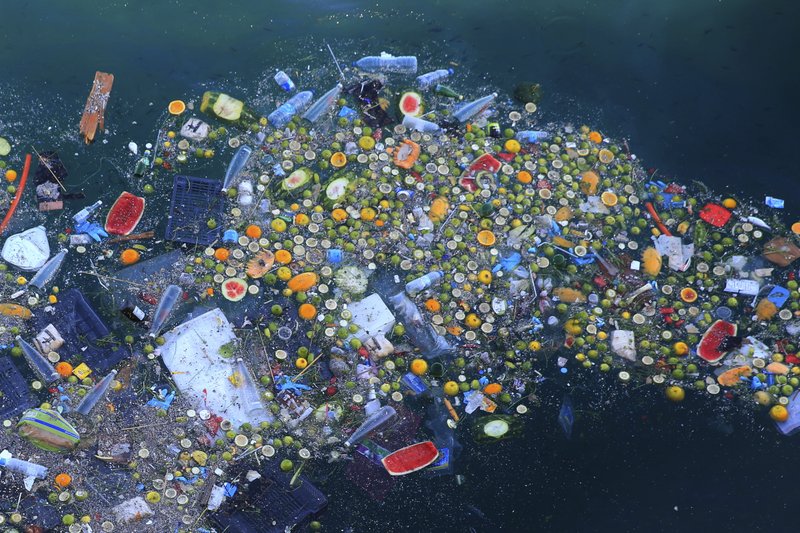
BEIRUT (AP) — Plastic bottles, soft drink cans and blue garbage bags. An old television, discarded vegetables and coffee cups. These are some of the random things that can be seen floating in the sea along Lebanon’s coastline.
Once a source of pride, the country’s Mediterranean coastline has become a source of shame for many Lebanese because of the swirling trash that pollutes its shores.
Fisherman Ahmad Obeitri has been a fixture at Lebanon’s corniche — a popular seaside promenade in central Beirut — for the past 30 years. He says the trash is killing off what’s left of marine life.
“These days if a fish comes our way it will only find nylon bags, garbage and sewage to feed on,” he said, lamenting over people who eat and drink as they walk on the corniche and then toss their cans, tins and other containers in the sea.
“You can open a cafe under water and invite your friends,” he added sarcastically.
Littering is not Lebanon’s only problem. The country has a long-running solid waste management problem that caused summer riots in 2015 as trash piled in the streets. The government solved the problem by simply shifting the trash to landfills and coastal dumps that often run into the Mediterranean.
Environmentalists say thousands of tons of trash and untreated waste is getting dumped directly into the sea.
Abdullah Absi, a 56-year-old civil engineer, said as a swimmer, the open sewage running into the sea was his biggest problem.
A group of 50 swimmers, including Absi, recently organized a 4.6-kilometer (2.9-mile) swim to highlight the problem and the idea that the sea is for all.
“We see the violations are increasing and there is no deterrent,” he said.



